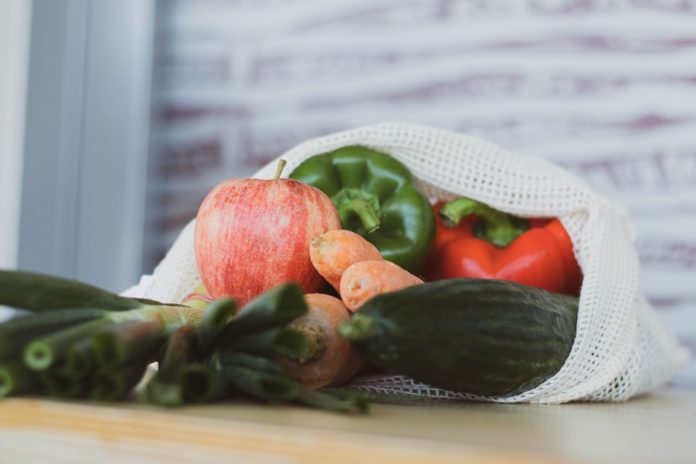Here are 6 sustainable eating habits:
1. Select sustainable seafood over other animal protein
Seafood offers a great source of protein and beneficial nutrients, but overfishing has had harmful impacts on the environment. Here are a few companies that offer healthy, sustainable aquaculture products: Kvaroy Arctic, Scout Canning, Dutch Yellow Tail, and my company, Mini Fish.
2. Fill your plate with plant foods
A diet filled with plant foods supports sustainability because plant foods require less water, energy, land and fertilizer to be produced. The more variety you consume, the more micronutrients your body will receive as well. It’s a win-win situation!
3. Shop local at least once a week
Not only is shopping local helpful to the economy in your community, but it can also have environmental benefits like reducing energy usage for food production and reducing emissions from cars (if you aren’t driving far to get the food). The easiest way to implement this is checking out your local farmers market or CSA (community supported agriculture program).
4. Go meatless on Monday
Did you know that the production of red meat has the highest ecological footprint compared to all other food groups? If you are used to consuming meat frequently, start cutting back by having a meatless Monday. Some great plant protein sources to try are tofu, lentils, edamame, chickpeas and black beans. This Black Bean, Corn and Zucchini Taco recipe is great for meatless Monday as well.
5. Reduce food waste when possible
Over 30% of food produced goes to waste! Think about all the resources used to create this food (land, energy, water etc) that are wasted as well. To help reduce food waste you can freeze and repurpose leftovers. Another idea is using an overly ripe avocado for a face-mask or turning old coffee grounds for fertilizer. Having a plan with your shopping is important too! First, do an inventory of what you already have. Then, brainstorm 2-3 meal ideas for the week and work backwards to make your food list. This will decrease random food items that you won’t end up using. Lastly, compost at home if you can.
6. Choose seasonal foods
Seasonal produce travels shorter distances to stores, therefore reducing fuel and pollution. Eating seasonal is also a great way to get a variety of different foods and nutrients so you’re never bored with what’s on your plate.
With sustainability, small steps made by many people can result in large changes. Which of these habits would you start adding into your life? Let me know in the comments!


























